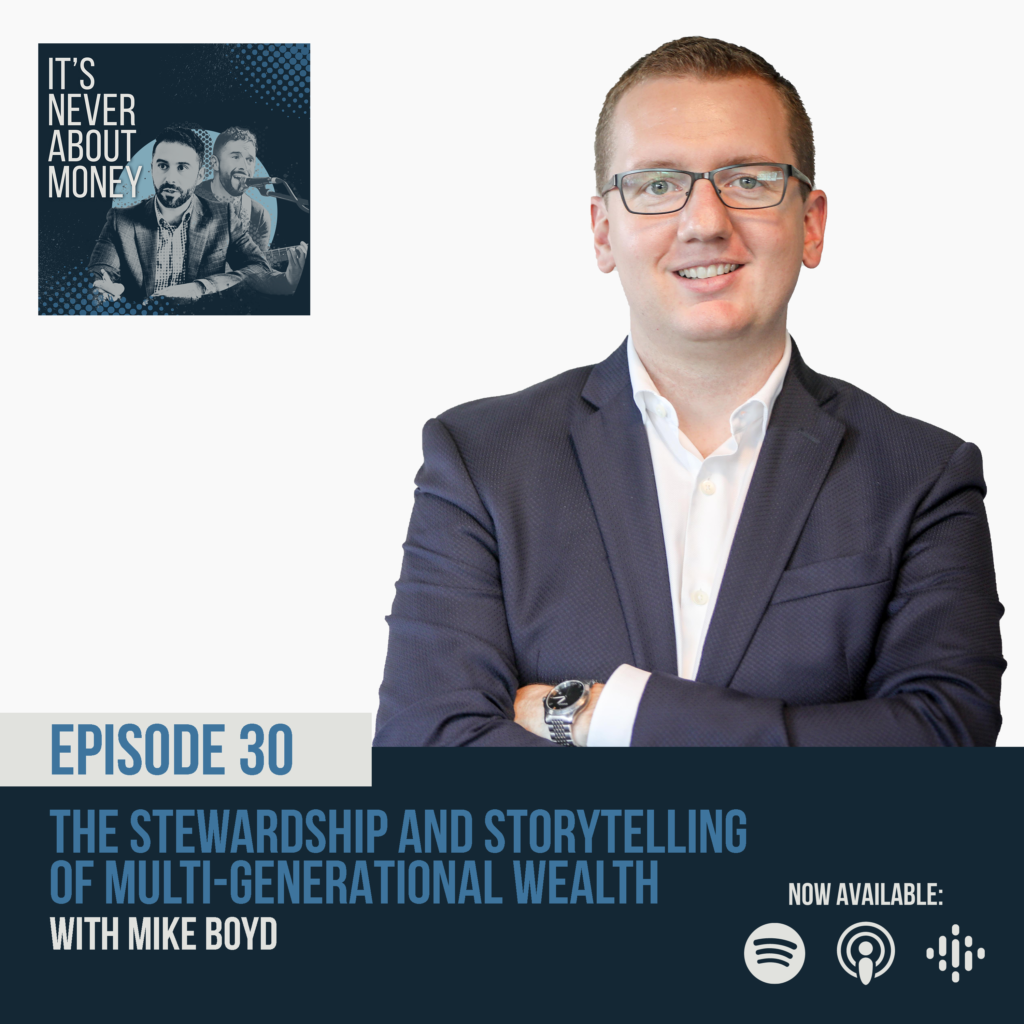Generational storytelling is the glue that keeps families, and family wealth, together.
This is a line of thinking that our guest, Mike Boyd, holds as paramount to the success and longevity of a multigenerational business family. Intentionally engaging in telling the story of a family will help develop and preserve the family’s legacy.
Mike is the co-owner and CEO of the Vroom group, founder of Prosura Insurance, an investor at Mudbrick Capital, an active YPO member, and host of the Business of Family Podcast.
Some families practise storytelling by creating a family museum or archive. They collate media clippings or any mention in newspapers of a member of the family enterprise in order to capture the fabric of the founding story. They intentionally preserve the legacy for future generations.
Mike actively practises storytelling within his family. Once a year right after Christmas, he writes letters addressed to his children for them to open when they are older. The letters can include anything from a recount of the significant events throughout the year, or a list of the family’s achievements and memories, or simply just where the family is living at the time.
Another way Mike and his family create tradition and tell their story is by taking a photo in the same spot on their property every year. Each year they can see how their children are growing and how the family is developing.
“It’s a bit of fun, but what we’re really doing is building the assets of the family and the history of it,” explains Mike.
Whether it’s sitting around a campfire and listening to the elders of the family tell their stories, or intentionally documenting the family’s history through books, podcasts, letters or photos; storytelling is incredibly important. These stories weave the fabric of the family legacy.
By maintaining and retelling the history of a family, future generations will know what the family stands for, where they came from, and who they are.
Hear the full conversation with Mike Boyd about generational storytelling in Episode 30 of It’s Never About Money.







